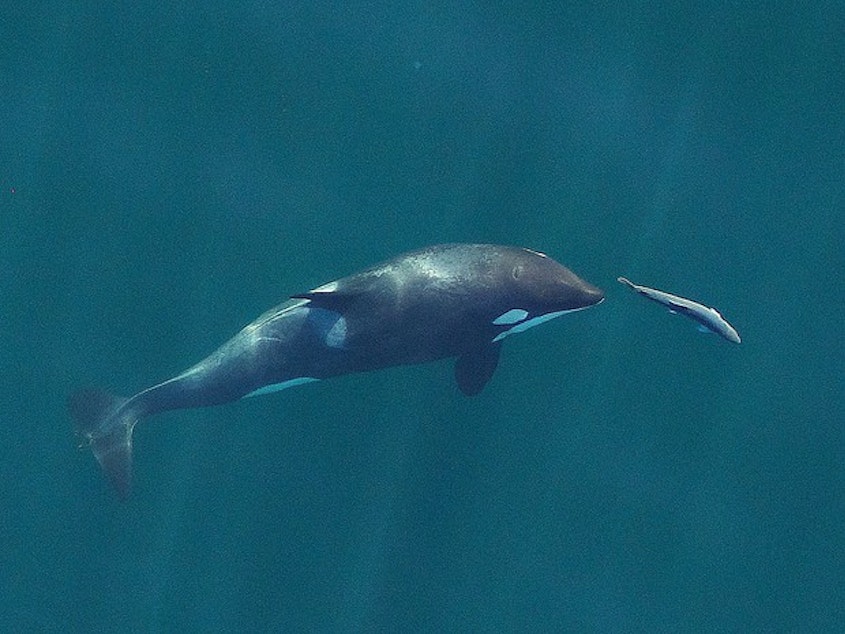Does eating less Chinook salmon help endangered orca whales?

A young resident killer whale chases a chinook salmon in the Salish Sea near San Juan Island, Washington, in September 2017.
It’s been about a year since some local businesses decided to stop selling chinook salmon as a way to help ailing orca whales. But does it really help?
It might be a small step, but for PCC Community Markets, the decision was in line with what customers and members expect of the co-op, said CEO Cate Hardy.
“They trust that we have made decisions that are not just financially expedient but in fact have a very clear focus on the environment and our social responsibilities,” she said.
Hardy said the Chinook salmon they do offer is from Alaska. Southern resident killer whales rely on salmon along the West Coast, where salmon runs have been on the decline.
(NOAA Fisheries says that crucial Chinook salmon come from the Fraser River in British Columbia, rivers that drain into Puget Sound and the Salish Sea, and the Columbia, Snake, Klamath, and Sacramento rivers.)
PCC has also provided alternatives to salmon like black cod. Hardy said customers have been receptive and that the stores will offer them again next season.
Sponsored
Scientists say this has minimal impact.
Ray Hilborn, a professor at the School of Aquatic and Fishery Sciences at the University of Washington, said the big picture is government policy.
“The catch of salmon is regulated by state and federal agencies,” he said. “Whether people in a restaurant choose to buy it or not, the catch is going to be the same; it would simply go to a different market.”
Hilborn said the biggest consumers of Chinook salmon are other marine mammals including northern resident killer whales and sea lions.




